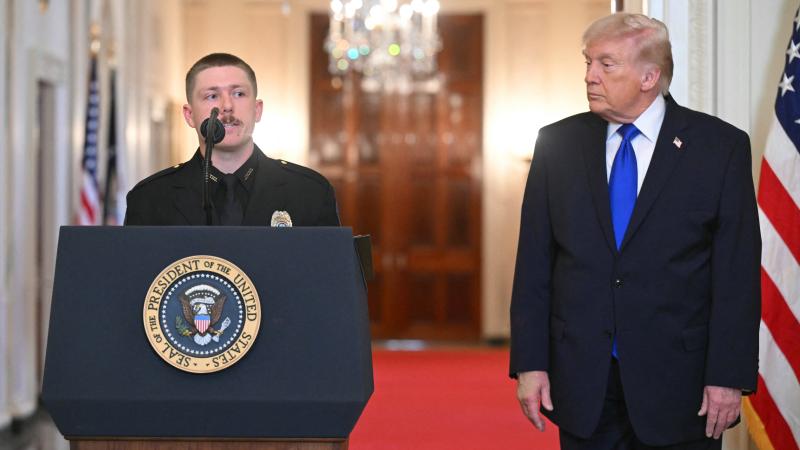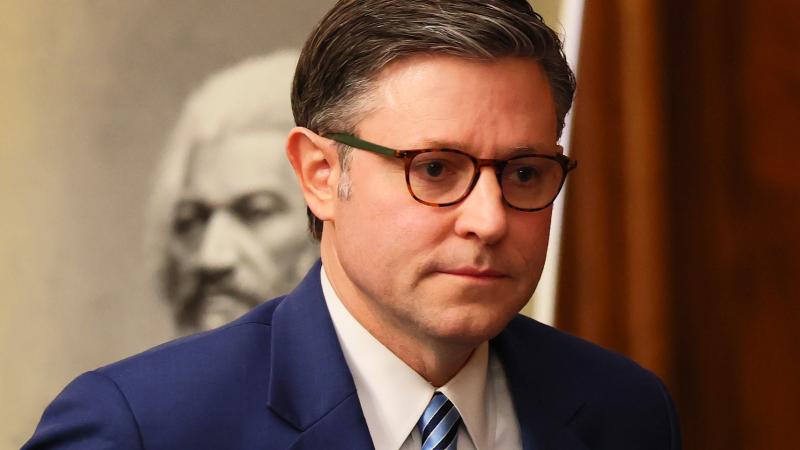With Olympics days away, Paris, organizers dash to scale back green agenda, make Seine swim-able
In addition, the French government is also dealing with a pubic relations mess – having bused thousands of homeless immigrants out of Paris with no apparent resources to help them in the relocation ahead of the games.
The start of the Paris Olympics is still a couple of weeks away, but already organizers are struggling to combat a series of problems related to the swelter summer, an over-ambitious green-energy agenda – and poop.
When Paris won the right in 2017 to host the Summer Olympics, there were boasts of making them “the greenest in Olympic history,” including solar panels on buildings, low-carbon transport, a reliance of locally-sourced food, the widespread use of temporary structures, and a major cleanup effort in the Seine, the scenic river that winds through the city.
“I want the Paris Games to be exemplary from an environmental point of view,” Paris Mayor Anne Hidalgo said during the launch of some of the initiatives, boasting the games would have half the environmental footprint of the 2012 Olympics in London or the 2016 edition in Rio de Janeiro and predicting the Olympics would be a springboard to accelerate the city’s green transition.
But as the start of games approaches, organizers are having to back off some of those pledges.
One part of the plan was to rely on geothermal cooling systems that would pump cold water from deep beneath the ground to keep indoor temperatures at least 10 degrees cooler than the outside air. But the viability of that plan is melting away amid technical issues and an unusually hot summer so far in Paris.
Delegations have been pushing back on the plan to house 10,500 Olympians (and afterwards, 4,500 Paralympians) in an Olympic Village without traditional air conditioning, worrying that warmer temperatures could affect athletic performance.
“These are high-performance games,” Australian Olympic Committee Chief Executive Matt Carroll said. “We’re not going to Paris for a picnic.”
Earlier this month, organizers gave in, ordering 2,500 temporary air conditioning units to be installed before the start of the games. But it’s still a compromise: Athletes’ living quarters will be cooled with the units, but common areas including cafeterias, training rooms and offices will still use the geothermal system.
Last month, Olympic teams from the U.S. and other countries vowed to bring their own AC units to the games.
The poop problem in the River Seine is proving a little more difficult to clean up.
The Opening Ceremony of the Games as well as long-course swimming events and the swimming portion of the Olympic triathlon are all scheduled to take place in what may be Europe’s most famous river.
The problem is that the Seine – like many rivers in big cities around the world – is where watered-down human waste is released during periods of intense rainfall.
When the overflow is no longer needed, normal sewer systems take over again, but the levels of E. coli and Enterococci bacteria coming from the waste take longer to dissipate. Those bacteria cause illness in most people and can cause life-threatening kidney failure in some.
It's no surprise that swimming has been banned in the Seine for more than a century.
To remedy the problem, France has constructed the Austerlitz Basin, a massive 13.2-million-gallon reservoir with a $1.5 billion price tag to handle the runoff that might have otherwise been dumped in the river. The basin was inaugurated in May, but with two weeks to be before the July 26 start of the games, bacteria levels remain stubbornly high.
The Paris Olympic Opening Ceremony – the first, organizers say, to be held outside a stadium – will probably be safe with some minor adjustments to avoid direct contact with the water. But the swimming events are in a kind of limbo.
There is an alternative plan for the open-water swim: organizers have said the Vaires-sur-Marne Nautical Stadium near Paris already being used for rowing and kayak events could be used for the swim if bacteria levels in the Seine are ruled unsafe.
But moving the triathlon is a bigger problem, since that would also require moving the cycling and running part of the race. So the alternative plan is to eliminate the swim completely and turn the race into a bike-run duathlon, a change that would benefit the weaker swimmers in the competition.
Most think the cleanup efforts for the River Seine will probably be enough for swimming to be open to the public starting in 2025. But the problems this year are having some less-competitive knock-on effects.
Hidalgo, the Paris mayor, and French President Emmanuel Macron vowed to swim in the Seine before the Olympics to prove how safe the river was, but with the clock ticking toward the start of the game neither has yet dipped their toe in the water.
In addition, the French government is also dealing with a pubic relations mess – having bused thousands of homeless immigrants out of Paris ahead of the games with no apparent resources to help them in their relocation.
Officials have said the removals were voluntary and not connected to the games.
But news outlets including The New York Times and the newspaper L’Équipe have obtained an email in which a government housing official said the goal was to “identify people on the street in sites near Olympic venues” and move them before the games.
The Facts Inside Our Reporter's Notebook
Links
- the greenest in Olympic history
- I want the Paris Games to be exemplary from an environmental point of view
- green transition
- Weâre not going to Paris for a picnic
- 2,500 temporary air conditioning units
- E. coli and Enterococci bacteria
- Those bacteria cause illness in most people
- banned in the Seine for more than a century
- Austerlitz Basin, a massive 13.2-million-gallon reservoir with a $1.5 billion price tag
- remain stubbornly high
- Paris Olympic Opening Ceremony
- Vaires-sur-Marne Nautical Stadium near Paris
- turn the race into a bike-run duathlon
- Hidalgo, the Paris mayor
- French President Emmanuel Macron
















